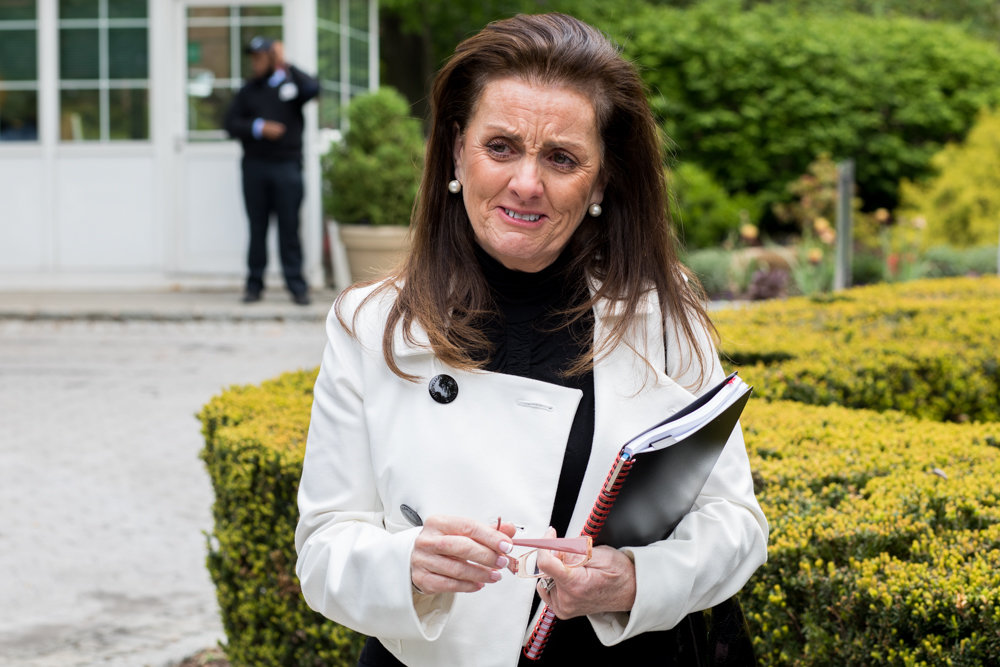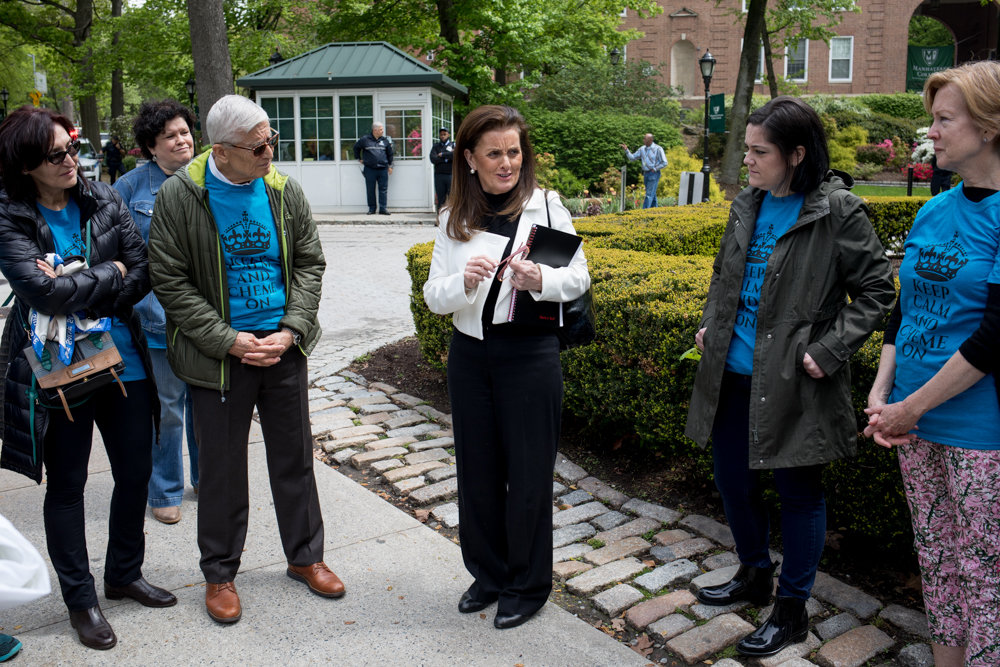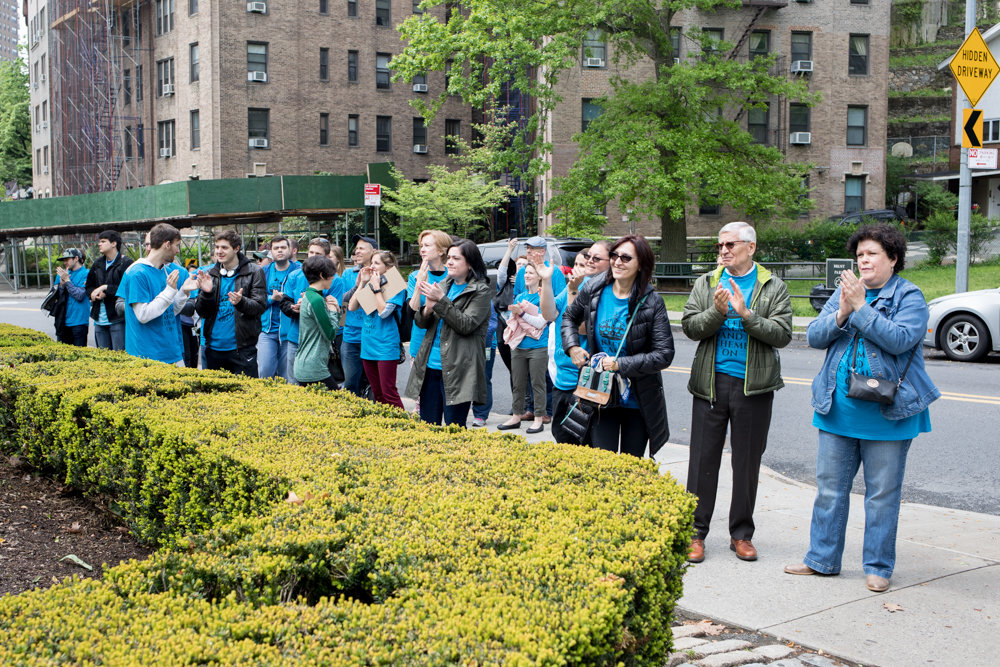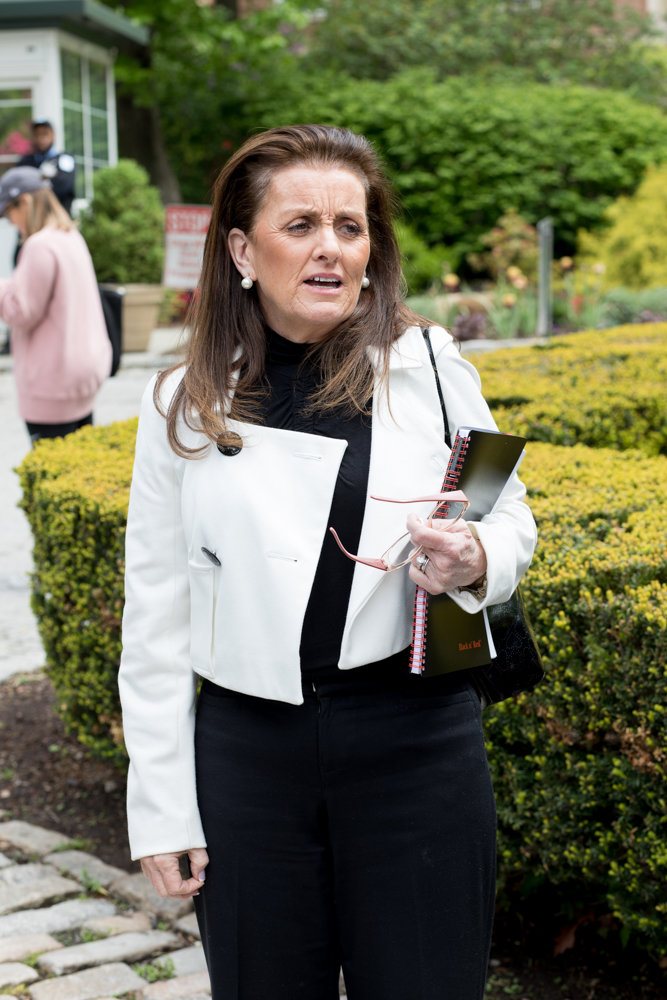Former prof sues college claiming she was pushed out
Ann Marie Flynn wants her original teaching job back at Manhattan College
A former tenured professor says Manhattan College was wrong to allegedly push her out of her job after more than 20 years at the school, claiming in a human rights commission complaint and a lawsuit filed in Bronx County Supreme Court that administrators discriminated against her over gender and perceived disability.
Up until a few years ago, Ann Marie Flynn was chair of Manhattan College’s chemical engineering department — a program she says was once listed with the likes of Princeton University and Massachusetts Institute of Technology as among the top chemical engineering programs in the nation.
She took family medical leave in January 2014 to care for her cancer-stricken husband and to deal with her own depression over his illness, according to complaints filed with the Bronx Supreme Court and the city’s human rights commission. When Flynn tried to return, she claims provost William Clyde and engineering school dean Tim Ward demoted her, prevented her from returning to work, solicited student complaints against her, and ultimately called a termination hearing she says violated the college’s employee policy, according to the human rights complaint.
Now Flynn wants a judge to reinstate her at Manhattan College and award back pay since January, among other damages.
The school has yet to file a response to either the human rights commission or the legal complaint, but in a statement to The Riverdale Press, Manhattan College said “a hearing committee composed of tenured faculty made findings on the charges against Dr. Flynn and made a confidential recommendation to the president of the college.
“These proceedings were held over the course of six months during which Dr. Flynn was represented by counsel. Prior to the final decision by the college, Dr. Flynn voluntarily tendered her resignation from her tenured position, and the college accepted it.”
Yet Flynn claims in the lawsuit the committee had ultimately recommended her termination.
It had concluded that Flynn’s depression, anxiety and post-traumatic stress disorder — although treated — “seems likely to be exacerbated by returning to teach full time” and is “even more likely to undermine the effectiveness of her teaching,” according to the complaint.
Because of that, Flynn claims Manhattan College violated the Americans with Disabilities Act by refusing to accommodate her disability. Her attorney, Jessica Apter, told The Press in an email that Flynn also was harassed based on her gender and “the perception that she was disabled.”
“She was not afraid to state her opinions about departmental issues, even when those opinions were very unpopular,” Apter said.
Before she needed to take time off, Flynn says life at Manhattan College was much different. In fact, Ward, Clyde and college president Brennan O’Donnell widely praised her, according to the complaints. Human resources vice president Barbara Fabe said Flynn was “a legend” who presented “a very compelling role model for our new faculty.”
It was to Fabe that Flynn provided documentation about her depression in 2014, according to the complaint. Although Flynn said she requested just a month of leave to help her husband with his cancer treatments, Ward instead offered her two semesters.
During that time, Flynn claimed she was told she shouldn’t participate in any meetings, gatherings or events related to school activities. She even needed permission to attend a campus ceremony to receive an award. Flynn’s complaint alleges that even after returning to teaching, Ward and Clyde required her to ask permission to attend functions and interact with students outside of class.
Three months after requesting leave, Flynn’s husband’s condition “improved dramatically,” and with that her own depression began to subside, according to the complaint. Flynn’s doctor wrote a recommendation clearing a return to work, but Ward and Fabe expressed a need for a return plan in order to avoid confusion, the complaint added.
While on leave, according to the suit, Ward told Flynn she did not share the “core values” of the department. She further alleges in her complaint that later in 2014, Flynn was told by a department chair to “please keep your emotions under control, maybe a shot of Jameson.” Soon after, Clyde and Fabe allegedly told her that when Flynn returned to the school, she would not be reinstated as department chair.
Flynn’s complaint claims the administration urged students to file harassment complaints against her. Ward and Clyde told faculty to document all interactions they had with Flynn, according to her lawsuit. Administrators eavesdropped on her classes and chastised her for “yelling” at students.
At a March 2015 meeting, Clyde allegedly suggested to Flynn she should “duct tape her hands to her sides and duct tape her mouth closed,” according to the suit.
A therapist diagnosed Flynn with complex PTSD in late 2016 as a result of the alleged harassment, according to the complaint. Flynn requested leave for the following spring, but then returned for the 2017 fall semester.
In February 2018, Clyde and Fabe told Flynn they had convened a “faculty termination committee” to review her employment, according to the human rights commission complaint. Later that year, she was placed on leave “to avoid changing faculty” during the fall semester. Flynn claims this demonstrates the college intended to fire her, even before the committee made a recommendation.
The committee met several times over six months, with administrators reportedly accusing Flynn of trying to undermine the chemical engineering department’s re-accreditation process. Yet, the civil lawsuit claims the hearing process was flawed, including allowing faculty members and administrators to share hearsay from students, but not paying attention to students who submitted written testimony in support of Flynn.
The committee recommended termination based on the substantiated charges, but also mentioned Flynn’s medical condition, according to the suit — The fact that she takes medication and how continuing to teach would only make her condition worse.
“Given these concerns, along with the seriousness of the college’s charges found to be substantiated, it is impossible to envision how Dr. Flynn can return to the chemical engineering department as a full-time member of the faculty,” according to the committee report, as shared in the lawsuit.
Soon after the recommendation, Flynn said she resigned.
Wade, Fabe and Clyde did not respond to requests on Monday to comment.
The lawsuit comes nearly a year after some students picketed outside Flynn’s disciplinary hearing, claiming the school was giving her an unfair shake.
“How can you pick at someone for being loud in a classroom?” asked Nicole May at the time, a Manhattan College alum who once had Flynn has a professor. “It was nitpicking. All she did was push her kids, and you’re going to try to terminate her for that?”
Flynn also seeks attorney’s fees and unspecified monetary damages.















